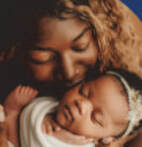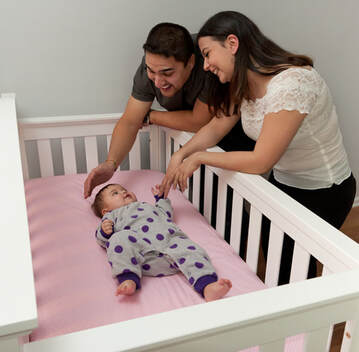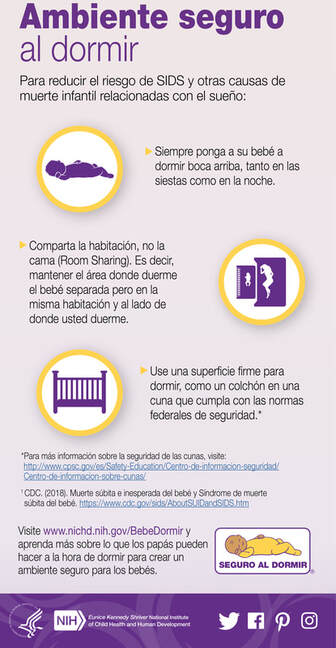On this page, learn about safe sleep, having your newborn meet family, and when to seek help if a baby has a fever.

MEETING A NEWBORN
Did you know newborns have notoriously low immune systems in the first few months of life? According to the American Academy of Pediatrics (AAP), a newborn's immune system doesn’t start maturing until about 3 months of age – that’s 12 weeks old!
To reduce the risk for newborns getting sick, here are some recommendations for families:
Did you know newborns have notoriously low immune systems in the first few months of life? According to the American Academy of Pediatrics (AAP), a newborn's immune system doesn’t start maturing until about 3 months of age – that’s 12 weeks old!
To reduce the risk for newborns getting sick, here are some recommendations for families:
- Extended family (family other than the primary caregivers) should not hold the baby if they are sick (i.e. sneezing, coughing, runny nose, and/or fever).
- Primary caregivers should take caution where they can.
- Everyone should wash hands before touching the baby regardless of illness status!
- If in doubt of illness, or exposure to illness of any kind, mask up!
FEVER IN NEWBORNS
Remember that a rectal temperature of 100.4 degrees Fahrenheit or higher should always be treated right away by a medical professional. Go to an emergency room if your regular pediatrician is closed. Even small temperatures like this can be a sign of severe illness in a newborn up to about 12 weeks of age.
Remember that a rectal temperature of 100.4 degrees Fahrenheit or higher should always be treated right away by a medical professional. Go to an emergency room if your regular pediatrician is closed. Even small temperatures like this can be a sign of severe illness in a newborn up to about 12 weeks of age.




